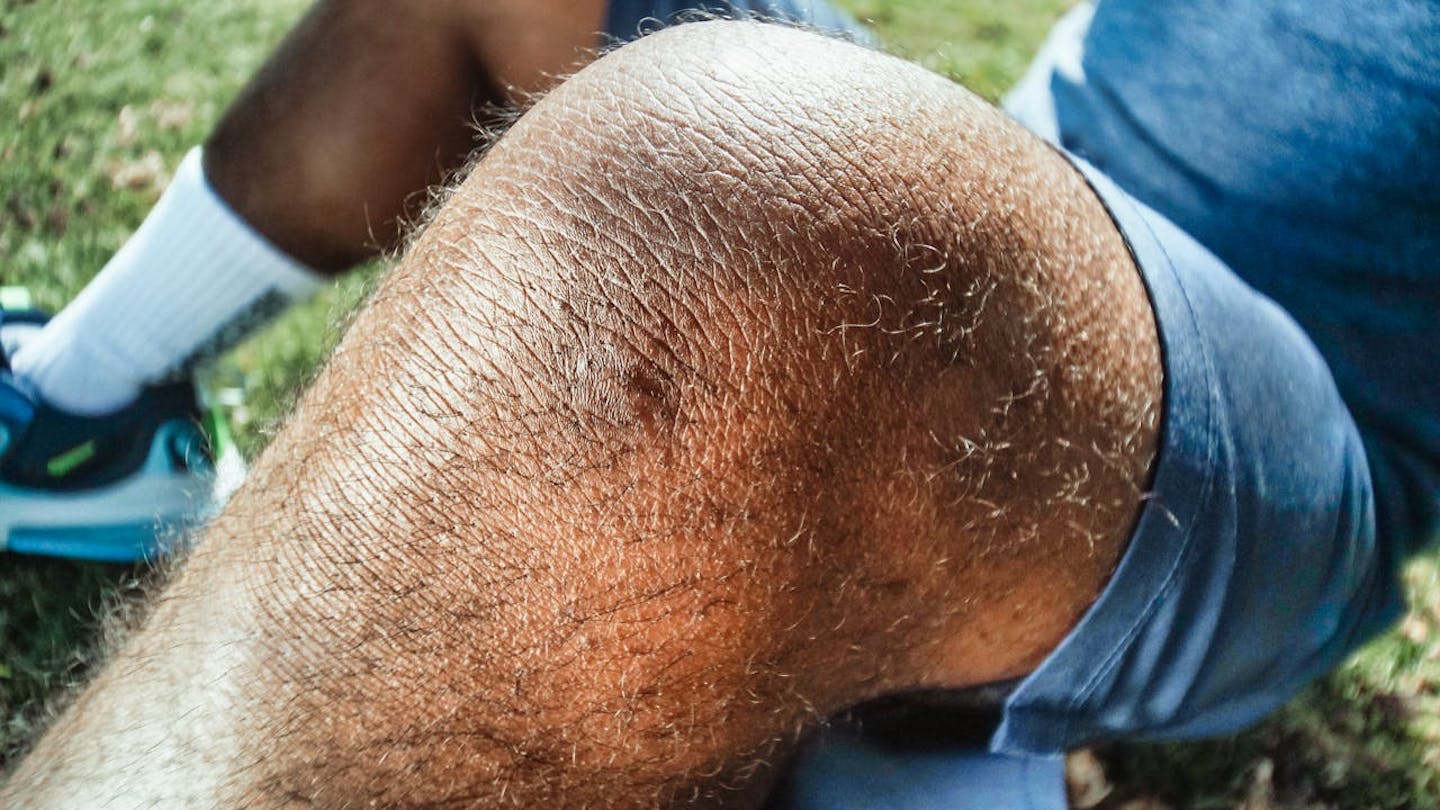It’s a quiet morning. You lace up your shoes, step outside and begin a brisk morning stroll. But as you take those first few steps, there it is, a faint grinding noise, almost like the crunch of gravel underfoot, except … the sound is coming from your knee!
Thinking back, you recall noticing a similar sound as you were walking up the stairs last week. You pause, do some quick stretches and continue walking. But the grinding sound quickly returns.
A wave of dread follows: Is there something wrong with my knee? Is that bone-on-bone? Am I getting arthritis?
This is a common experience for people of all ages. Before you hit the panic button, let’s unpack what these noisy knees – known in medical terms as “knee crepitus” – might really mean.
What is knee crepitus? How common is it?
Knee crepitus refers to the audible crackling, creaking or grinding sounds that occur when you bend or straighten your knee. You might hear it when climbing stairs, standing up from a chair, or even just as you walk.
Surprisingly, we don’t know what actually causes knee crepitus. Theories suggest these knee joint noises may be attributed to damaged knee cartilage, tendons moving over bones, or the popping of normal gas bubbles in the fluid surrounding the knee.
But current scientific evidence is insufficient to confidently determine the origin of this common symptom.

Our recent review of the 103 studies of knee crepitus (involving 36,439 people) found 41% of people in the general population had noisy knees.
There is a common perception that this crackling, creaking or grinding noise is a sign of a damaged or arthritic knee. However 36% of people who had no pain and had never injured their knee also had knee crepitus.
So, knee crepitus is common across the population, including among people with no knee problems at all.
But I heard it’s an early sign of arthritis…
Having knee crepitus can create worry, and make people fearful of exercising and using their knees. People often ask: Am I causing further damage to my knees? Does this mean I’m going to get arthritis?
Noisy knees are more common among older adults with arthritis: 81% of people with osteoarthritis have knee crepitus.
However, knee crepitus isn’t always a sign of impending knee problems and shouldn’t stop you from exercising and using your knees. In a study of 3,495 older adults (mean age 61 years), two-thirds of people who reported “always” having knee crepitus did not develop symptomatic osteoarthritis over the next four years.
If you’re a younger adult with a previous knee injury, the story is much the same: knee crepitus is still common, particularly after a knee injury, but it’s not always a sign of underlying problems.
Our recent study looked at 112 young adults (with a median age of 28) who had a previous knee injury requiring surgery. We found those with knee crepitus were twice as likely to have cartilage damage (particularly in the kneecap area) in the first year post-surgery. However, having knee crepitus did not mean worse outcomes in the future.
It seems that while those with knee crepitus may experience worse pain and symptoms in the early stages following knee injury, this does not translate to worse recovery or greater rates of osteoarthritis over the long term.
What should I do about my noisy knees?
Given noisy knees are common in those without knee pain, injury or arthritis, you generally shouldn’t be concerned. Yes, your knees might wake your baby as you step away from their cot, and perhaps a quiet yoga studio might draw focus on your knees, but generally speaking, if it’s not painful, it’s nothing to worry about.
Unfortunately, there are no effective treatments for knee crepitus. The best advice is to keep doing the things that help to improve overall knee health: getting regular exercise, both aerobic and resistance-based, and achieving and maintaining a healthy body weight.
Just be cautious about sourcing information online, as more than half of the advice available on the internet about knee clicking isn’t supported by research.
So, when should you be concerned?
Although knee crepitus is often benign, there are circumstances where you could consult your health-care provider. This includes if your noisy knees are:
-
accompanied by pain, swelling, instability, or locking
-
associated with other signs of arthritis, such as stiffness, redness, or reduced mobility.
In such cases, a health-care provider may recommend a physical assessment to examine structures in and around the knee joint, and evaluate the impact of your symptoms on your quality of life and participation in activities.
The clinician may recommend:
- physiotherapy and exercise to strengthen supporting muscles
- seeing a dietitian for advice about weight management
- anti-inflammatory medication.
Most importantly, creaky knees alone, without other symptoms, are not normally cause for concern. So, lace up those shoes and keep moving.
This article is republished from The Conversation, a nonprofit, independent news organization bringing you facts and trustworthy analysis to help you make sense of our complex world. It was written by: Jamon Couch, La Trobe University and Adam Culvenor, La Trobe University
Read more:
- Latest data suggests Australia is overcoming its sugar addiction
- Why preserved vegetables can turn deadly – and how to stay safe
- Could cutting back on caffeine really give you more vivid dreams? Here’s what the science says
Jamon Couch receives funding from an Australian government Research Training Program scholarship.
Adam Culvenor receives funding from The National Health and Medical Research Council and Medibank Better Health Research Hub.


 The Conversation
The Conversation
 America News
America News USA TODAY National
USA TODAY National Local News in California
Local News in California Local News in Minnesota
Local News in Minnesota Reuters US Top
Reuters US Top Cover Media
Cover Media